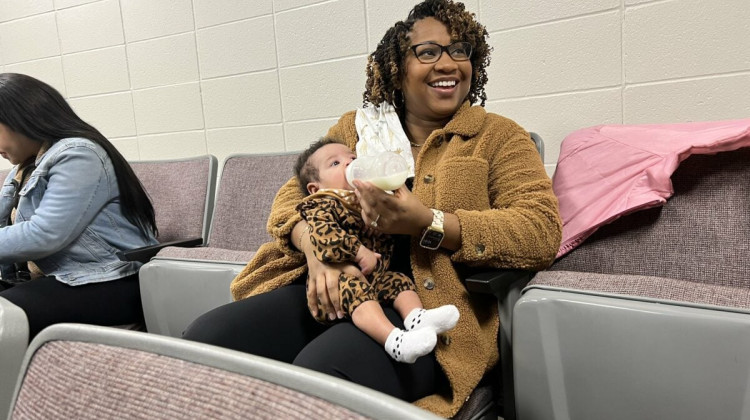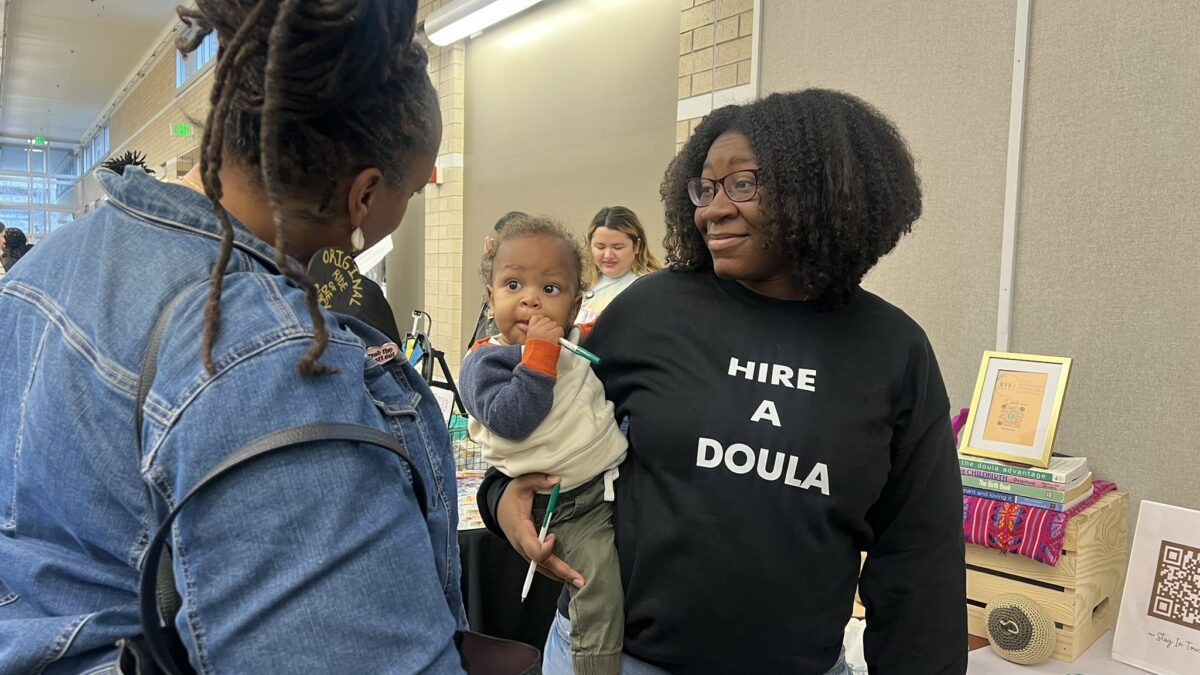
Latasha Girdy feeds her 3-month-old daughter Mikayla during the panel discussion.
Jade Jackson/Indianapolis RecorderThe nonprofit organization MelaMama Maternal Wellness hosted the “EmpowerHER: Navigating Black Maternal Health” event in collaboration with IU Health’s infant and maternal health team on Saturday, Jan. 27, 2024, at the Ruth Lilly Health Education Center in Indianapolis.
The event consisted of different minority and Black organizations offering maternal health services. A panel discussion on the current state of Black maternal health followed.
“The journey of motherhood is one that should be characterized by joy, hope and the promise of a healthy future. However, for far too many Black moms, this journey is marred by disparity in maternal health that cannot be ignored,” said Sierra Woods, founder of MelaMama Maternal Wellness.
Indiana has the third highest maternal mortality rate in the nation; the majority of those deaths are Black women.
IU’s Public Policy Institute found that lack of access to services, substance use disorders and discrimination in health care contributed to disparity in maternal mortality rates.

The panel host was Shamika Crowder, a certified community health worker aiding with high-risk pregnant women through conducting home visits and providing care and access to resources.
She leads the first statewide community health worker model, served on the state’s Maternal Mortality Review committee and is a board member for the Center for Wellness for Urban Women, Inc.
The panel consisted of Chanel Trotter, a family nurse practitioner, Dr. Lauren Dungy-Poythress, an OBGYN, Cheyenne Starner, a certified nurse midwife, Courtney Hall, a registered nurse, Charla Yearwood, a licensed clinical social worker, and Ashley Porter, a public health nurse.
Maternal health disparities for Black mothers
“You’re the patient. Be comfortable telling your provider what your needs are and what’s bothering you,” said Porter, who also spoke on changes that can close disparity gaps for women.
“A mom has 12 to 14 prenatal visits. After they have the baby, they only have one visit at six weeks. We need to support mothers. Keep in mind the women when you are visiting a new mom. The baby will be okay, think about supporting the mom.”
Panelists acknowledged the barriers to care Black mothers have faced for years and how those barriers contributed to mistrust of the medical health care system.
“People are afraid to say the word racism. Anything that affects a woman is going to affect a Black woman more because of all the historical and structural concerns we have,” said Dungy-Poythress.
Other topics discussed include breastfeeding, how and why fathers should be a part of the conversation on Black maternal health, and legislation that can help tackle the disparities.
The event was organized partly to pay tribute to Dr. Chaniece Wallace, a Black patient at Riley Children’s Hospital who died due to complications following the birth of her daughter in 2020.
Her story garnered national attention, underscoring the racial disparities in maternal health care that can even affect an accomplished Black medical professional like herself.
 DONATE
DONATE







 Support WFYI. We can't do it without you.
Support WFYI. We can't do it without you.